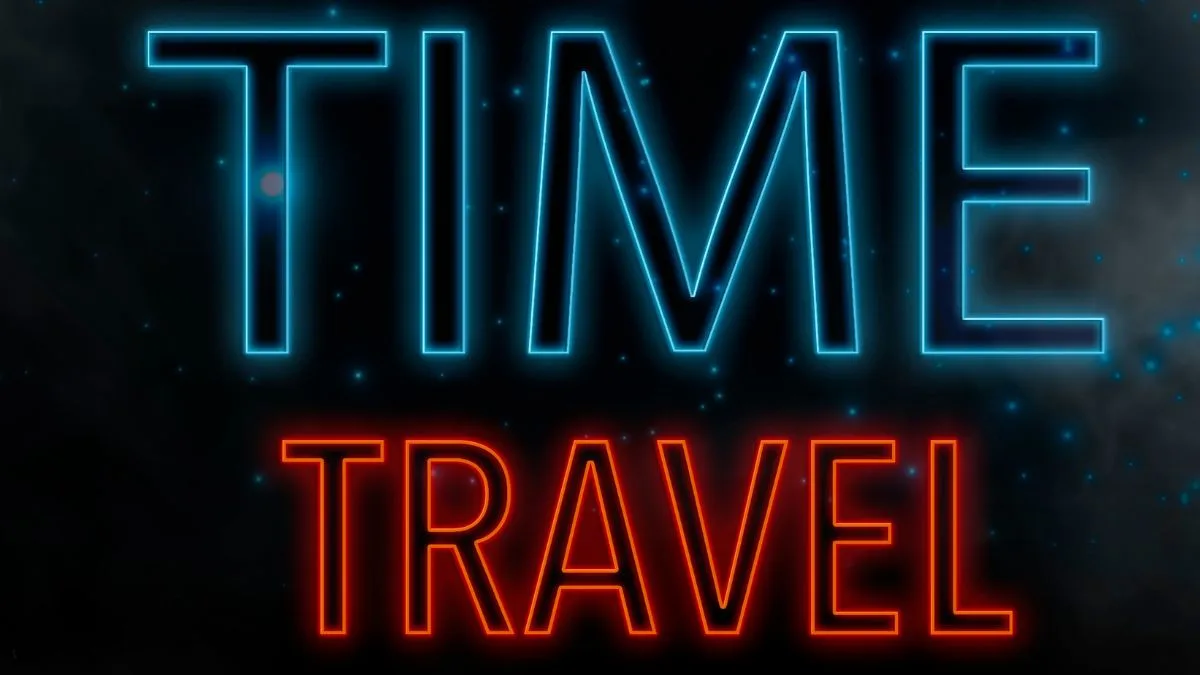Time travel has been one of humanity’s most captivating concepts, often explored in science fiction and theoretical physics.
From H.G. Wells’ The Time Machine to blockbuster movies like Back to the Future and Interstellar, time travel continues to spark our imagination.
The ability to travel through time and witness historical events or visit the future holds an undeniable appeal, but is it really possible?
What is Time Travel?
Time travel refers to the concept of moving between different points in time, either forward into the future or backward into the past.
The idea of time travel has captured human imagination for centuries, appearing in both ancient myths and modern science fiction.
While the historical roots of time travel can be traced back to early philosophical musings, its popularization can be largely credited to authors like H.G. Wells, whose The Time Machine (1895) introduced the idea of mechanical time travel.
In the world of science, however, time travel is still a theoretical concept. Modern physics, particularly the work of Albert Einstein, has provided frameworks that make time travel seem possible—at least in theory.
Time Travel Theories and Concepts:
Over the years, several scientific theories have been proposed to explain how time travel might work. Let’s explore a few of the most notable ones:
1. Einstein’s Theory of Relativity
One of the foundational theories of time travel comes from Einstein’s Theory of Relativity, which suggests that time is not absolute but relative. According to this theory, time can be affected by speed and gravity. For instance, as an object moves closer to the speed of light, time slows down for it relative to stationary observers. This phenomenon, called time dilation, has been confirmed through experiments involving high-speed particles and GPS satellites.
In essence, traveling forward in time is possible by moving at speeds close to the speed of light. However, traveling backward in time introduces more complex problems and paradoxes that are still a matter of debate among physicists.
2. Wormholes: Bridges to the Past and Future
Another concept that has intrigued scientists and science fiction writers alike is the idea of wormholes. Wormholes are theoretical tunnels in space-time that could connect two different points in space and time. Imagine a tunnel with two ends, one in the past and one in the future. If such a structure could exist, it might allow for travel between different times.
While wormholes are still theoretical and have not been proven to exist, the equations of General Relativity suggest they could, in theory, allow time travel if they could be stabilized. The challenge lies in the immense energy required to create and maintain a wormhole large enough for human passage.
3. Quantum Mechanics and Time Travel
Quantum mechanics, which deals with the behavior of particles at the subatomic level, has also been linked to time travel in certain theoretical models. Quantum entanglement and superposition suggest that particles can exist in multiple states at once, leading to theories about the potential for particles to “move” through time.
While time travel to the past is still highly speculative in the quantum realm, some researchers believe that certain quantum phenomena could one day help unlock the mysteries of time travel. However, the practical application of these ideas is far from being realized.
Types of Time Travel:
1. Traveling to the Past
The idea of traveling backward in time is arguably the most popular in fiction, where characters visit historical moments or interact with their past selves. However, this type of time travel raises significant paradoxes and challenges.
The grandfather paradox, for example, presents a dilemma: If you travel back in time and prevent your grandfather from meeting your grandmother, you would never be born, making it impossible for you to go back in time in the first place.
2. Traveling to the Future
Time travel to the future is more straightforward and is grounded in the concept of time dilation. As per Einstein’s relativity, an object traveling at near-light speeds will experience time more slowly compared to someone at rest. This means that astronauts traveling at high speeds could technically experience a few days while decades pass for people on Earth.
While this is a theoretically sound way of traveling to the future, the technology required to achieve these speeds is far beyond current capabilities.
3. Forward and Backward Time Travel
In theory, time travel could allow movement both forward and backward. While traveling to the future might be more feasible, traveling to the past remains a more contentious and speculative idea.
Find More: 6 Greece Travel Tips
Time Travel Paradoxes:
Time travel raises a number of paradoxes that challenge our understanding of causality and logic. Some of the most famous include:
1. The Grandfather Paradox
This paradox occurs when a time traveler goes back to the past and changes events in such a way that they prevent their own existence, leading to a logical contradiction. How can you exist to go back in time if your actions negate your existence in the first place?
2. The Bootstrap Paradox
This paradox involves an object or piece of information that is sent back in time, only to become the cause of its own existence. For example, if you give Shakespeare a copy of his plays, he could publish them, and then the copy you gave him becomes the source of his work in the future. The paradox here is that the plays exist without an original author.
3. Closed Timelike Curves (CTCs)
CTCs are solutions to Einstein’s equations of General Relativity that describe paths in spacetime that loop back on themselves. These loops theoretically allow for time travel to the past. However, CTCs bring up significant philosophical and logical questions, particularly about the consistency of events in the timeline.
Is Time Travel Possible?
While time travel is theoretically possible based on Einstein’s theories and concepts like wormholes, it remains highly speculative. The main barriers include the enormous energy required to achieve speeds close to the speed of light, the lack of a practical method for stabilizing wormholes, and the unresolved paradoxes.
As of now, time travel is largely confined to theoretical discussions and science fiction. However, advancements in quantum mechanics, space-time research, and relativity could one day provide us with the tools to make time travel a reality.
The Role of Time Travel in Popular Culture:
Time travel has become a mainstay in popular culture, with movies, books, and TV shows often exploring the concept. Back to the Future, Doctor Who, and Interstellar have all made significant contributions to our cultural understanding of time travel.
These stories have sparked curiosity and inspired countless discussions about the possibilities of traveling through time, even if the technology remains out of reach.
Adventure Awaits:
Time travel is one of the most intriguing concepts in science and fiction, captivating our imaginations and challenging our understanding of the universe.
While it remains largely theoretical, the possibility of time travel raises profound questions about causality, the fabric of space-time, and the limits of human knowledge.
If or not time travel will ever be possible is still an open question, but one thing is for certain—it will continue to fascinate and inspire future generations of scientists and dreamers alike.
CTA:
Curious about the future of time travel? Keep exploring the boundaries of science and fiction! Subscribe to our newsletter for more deep dives into fascinating scientific topics like time travel and beyond.
FAQs:
Q: Is time travel to the past possible?
A: According to current scientific understanding, traveling to the past presents major paradoxes and challenges. While theoretically possible through concepts like wormholes, no practical method for backward time travel has been discovered.
Q: Can I travel to the future using time dilation?
A: Yes, time dilation, a concept from Einstein’s relativity, allows for time travel to the future. Traveling at speeds near the speed of light would cause time to pass more slowly for the traveler compared to people on Earth.
Q: What are time travel paradoxes?
A: Time travel paradoxes are logical contradictions that arise when you travel through time. Notable examples include the grandfather paradox and the bootstrap paradox, both of which challenge our understanding of causality.


